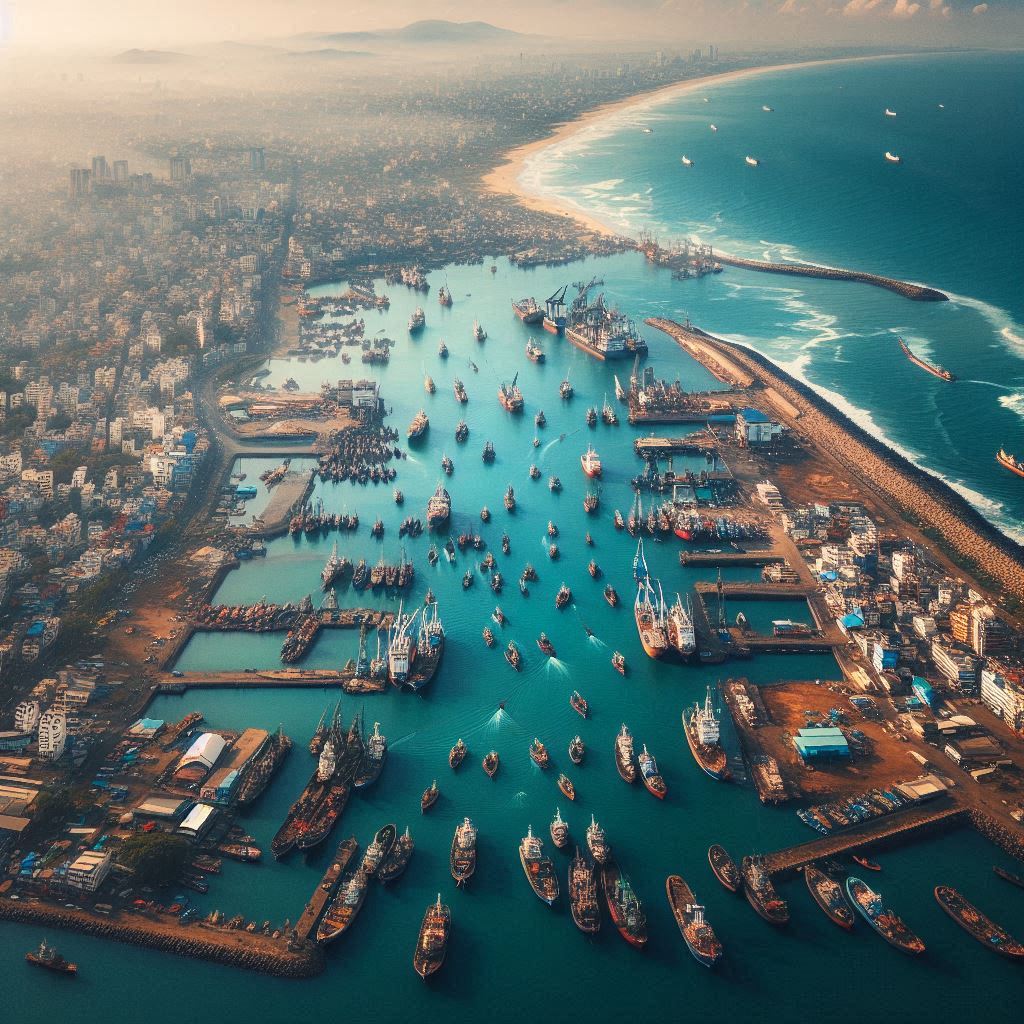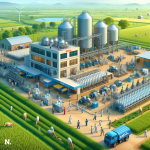As nations become more aware of the potential of their rivers, lakes, and other water resources, the idea of the “blue economy” is expanding quickly. In India, the blue economy has become an essential part of the nation’s economic growth and sustainability efforts, especially following the announcement of Blue Economy 2.0 in the February 2024 interim budget speech. This article explores what the blue economy is, why it is important, and how financial efforts such as blue finance are helping India tap into these opportunities.
What is the Blue Economy?
The blue economy refers to economic activities related to water bodies, including oceans, rivers, and lakes. It encompasses industries like fishing and aquaculture, maritime transport and shipping, port operations, coastal development, marine tourism, and even offshore energy production. These activities are crucial for the livelihoods of many communities, particularly those living near coastlines or depending on water resources for survival.
India boasts one of the world’s longest coastlines, spanning over 7,500 kilometers and providing living quarters for millions of people. The Indian Ocean, the third-largest body of water in the world, encircles the country and currently contributes significantly to its GDP. India’s blue economy contributes significantly to the nation’s overall economic well-being, accounting for about 4% of GDP. This economy also extends beyond the ocean to inland water resources like rivers and lakes, which are equally important for trade, transport, and fishing industries.
How Blue Finance is Fueling the Blue Economy
Financial support is necessary to ensure the blue economy grows sustainably. This is where “blue finance” comes in. Blue finance refers to the funding directed toward projects that protect or sustainably use ocean and water resources. It helps ensure that economic activities related to water bodies do not harm the environment but rather promote their protection and long-term health.
Oceans are estimated to have assets worth a staggering $24 trillion, growing by $2.4 trillion annually. With this level of value, it is essential that finance systems evolve to support the responsible development of these assets. India’s blue economy has massive potential to help achieve key national goals, including food security, poverty alleviation, and climate change mitigation.
The International Finance Corporation (IFC) recently approved a $500 million loan to Axis Bank, marking its first blue investment in India. This funding will be used to support various blue economy projects, such as water and wastewater management, reducing marine plastic pollution, restoring marine ecosystems, and developing offshore renewable energy sources. Such initiatives are vital to addressing environmental challenges while promoting economic growth in coastal regions.
Axis Bank’s role in this is pivotal. Being among the first Indian banks to have an Environmental, Social, and Governance (ESG) strategy approved by the board, Axis Bank is leading the way in sustainable financing. The bank’s policy aligns with international standards, attracting global funding for projects that support environmental goals. By March 2024, Axis Bank has already secured an additional ₹30,000 crores of funding, fulfilling its commitment made in 2021 to finance ₹60,000 crores in ESG-related businesses by 2030. The recent IFC funding will further boost the bank’s portfolio in blue and green projects, providing the financial backbone needed to fuel the growth of India’s blue economy.
Key Projects Driving India’s Blue Economy
India’s government has also introduced several initiatives to ensure the sustainable development of the blue economy. One such initiative is the Sagarmala Project, which focuses on port-led development, aiming to enhance coastal shipping and trade while promoting tourism through cruise routes. This project highlights how India’s ports and coastal regions are essential for economic growth and trade, with potential to drastically increase the share of coastal shipping from the current 6% to 33% by 2035.
Another significant initiative is the Pradhan Mantri Matsya Sampada Yojana (PMMSY), which aims at the responsible and sustainable development of India’s fisheries sector. As fishing is a major component of the blue economy, promoting sustainable practices ensures the protection of marine ecosystems while boosting productivity.
India’s strategic location in the Indian Ocean also makes it a central player in maritime trade. Every year, an estimated 100,000 ships pass near Indian shores, facilitating trade across the world. Furthermore, the nation’s subsurface resources—oil and gas, for example—are crucial for energy generation and make a substantial contribution to the security of the nation’s energy supply.
The role of blue finance in supporting these projects cannot be understated. The financial support from Axis Bank, alongside international investments like those from the IFC, ensures that the blue economy can grow without harming the environment. Sustainable finance practices help mitigate the risks of pollution, over-exploitation of resources, and ecosystem degradation. They promote responsible development that benefits local communities while protecting valuable natural resources.
Role of Blue Finance in India’s Growth
In summary, the blue economy is an essential part of India’s economic landscape, contributing significantly to GDP and supporting millions of people, particularly in coastal regions. The emergence of blue finance, as exemplified by Axis Bank’s efforts, provides the financial framework needed to support sustainable development in this sector. Initiatives like the Sagarmala Project and PMMSY are important steps in promoting responsible growth. Through continued investment and sustainable practices, India’s blue economy can thrive, benefiting both the country and the global environment.





